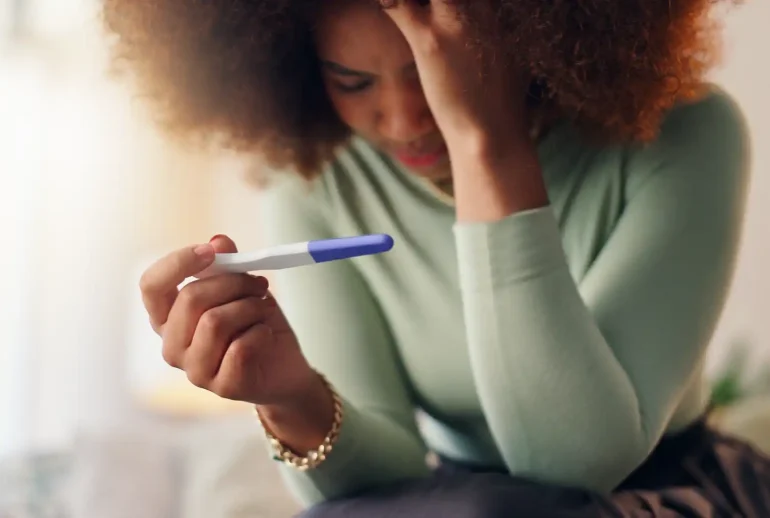Can I Still Be Pregnant Even If the Test Is Negative?
You’re experiencing pregnancy symptoms—maybe sore breasts, nausea, or fatigue—but your pregnancy test is negative. Now you’re left wondering: could I still be pregnant? The short answer is yes. A negative pregnancy test but pregnant situation is more common than you might think.
Let’s explore why this happens, when to retest, and what steps to take next if your symptoms persist.
How Pregnancy Tests Work
Home pregnancy tests detect the hormone hCG (human chorionic gonadotropin), which the body produces after implantation. But it can take several days after implantation for levels to rise high enough to be detected in urine.
According to the Mayo Clinic, testing too early is one of the most common causes of false negatives.
Common Reasons for a False Negative
- Testing Too Early: If you test before your missed period, your body might not have produced enough hCG yet.
- Diluted Urine: If you drink a lot of fluids before testing, your urine may be too diluted to detect hCG.
- Improper Testing: Not following test instructions, using expired tests, or checking results too soon/late can all lead to incorrect readings.
- Irregular Ovulation: If you ovulated later than expected, your implantation—and hCG rise—may be delayed.
What to Do If You Think You’re Pregnant
If your symptoms are strong and the test is negative pregnancy test but pregnant, give it a few days and test again. The hormone doubles every 48–72 hours in early pregnancy. Testing again with first morning urine can also improve accuracy.
If you’re not sure when to test again, check out our guide on When to Take a Pregnancy Test.
Symptoms That Suggest You Might Still Be Pregnant
Here are some common early signs of pregnancy that may persist even with a negative test:
- Missed period
- Nausea or food aversions
- Increased fatigue
- Frequent urination
- Mild cramping or spotting (implantation)
For a more detailed breakdown of early symptoms, read our article on 10 Early Signs You Might Be Pregnant.
When to See a Doctor
If you’ve had multiple negative tests but still believe you’re pregnant, or if you’re experiencing unusual symptoms like severe abdominal pain or bleeding, it’s time to contact your doctor.
Your provider can order a blood test, which detects lower levels of hCG and is more accurate than home urine tests.
Other Possible Explanations
Not all symptoms mean pregnancy. They could also be caused by:
- Stress or changes in routine
- Illness or infection
- Hormonal imbalances or thyroid issues
- Perimenopause or medication side effects
False Positives vs. False Negatives
While rare, false positives (a test says you’re pregnant but you’re not) are much less common than false negatives. Most often, a negative test that later turns positive is due to testing too early.
Healthline provides more insight into how false negatives happen and how to avoid them.
Final Thoughts
If your gut says something’s different and the test says “no,” don’t ignore your instincts. Hormones don’t rise at the same rate for everyone, and timing is everything.
Give it a few days, test again, and seek medical advice if things remain unclear.
Your body knows more than any test—and you deserve answers, peace of mind, and support at every step.
